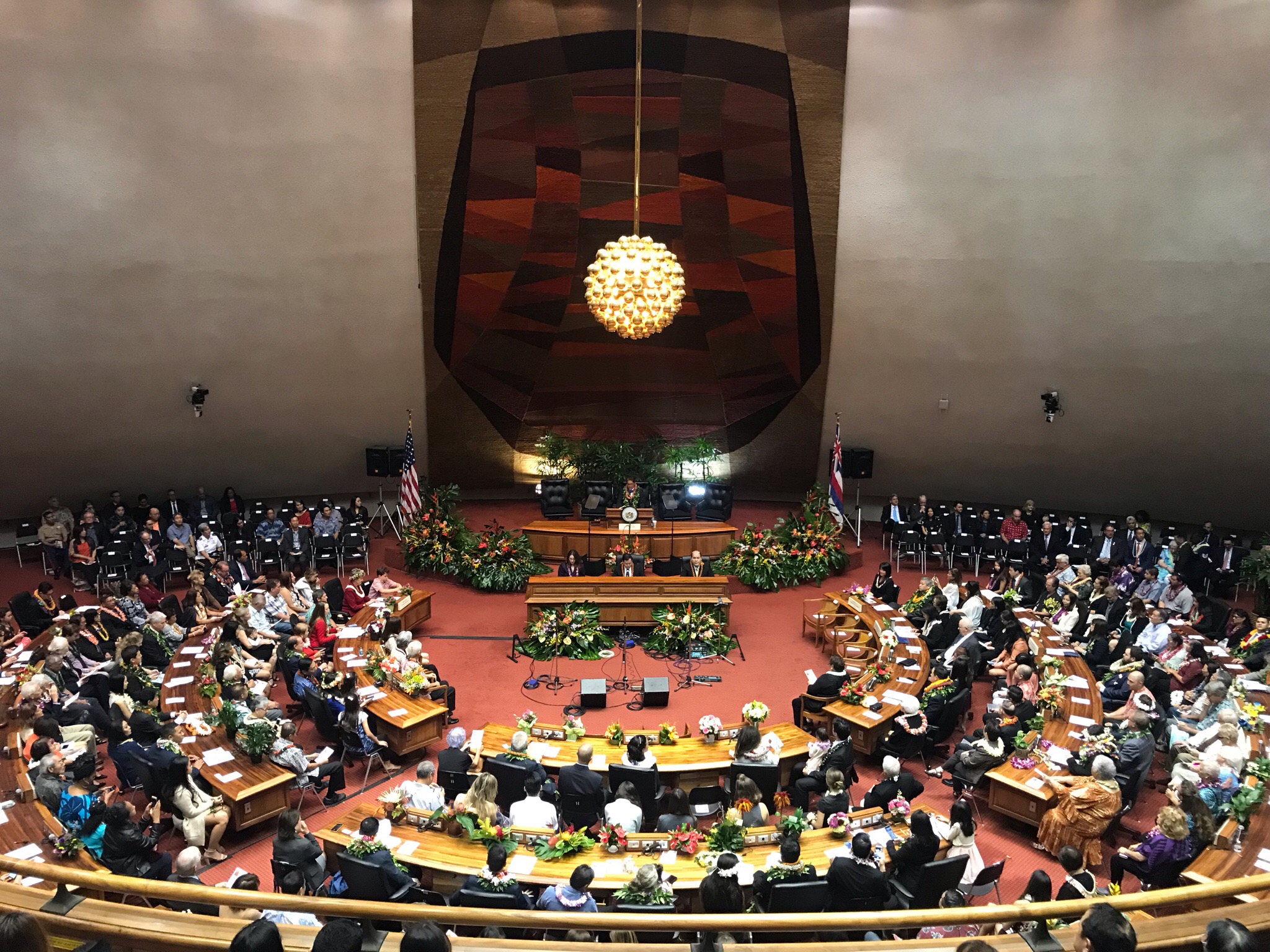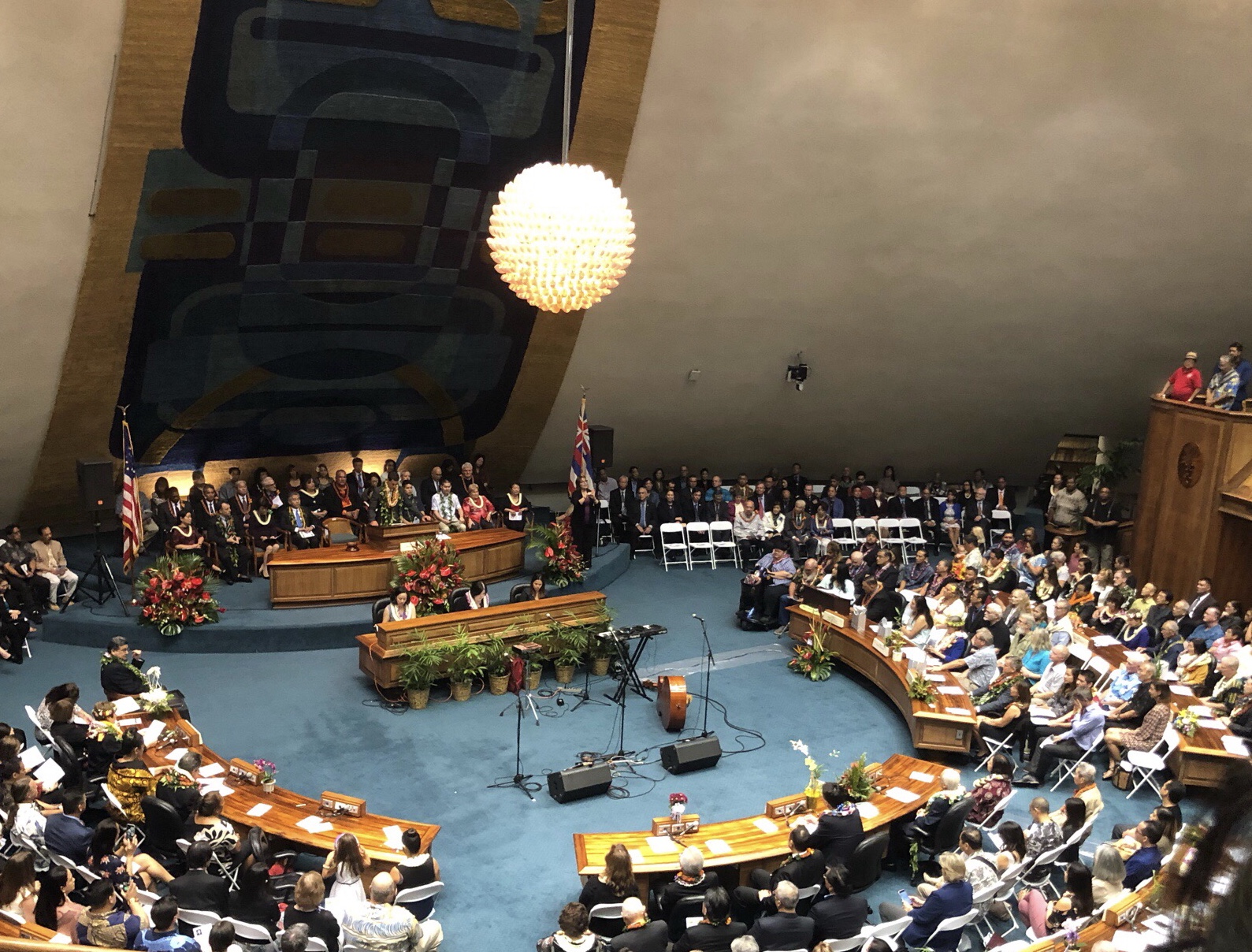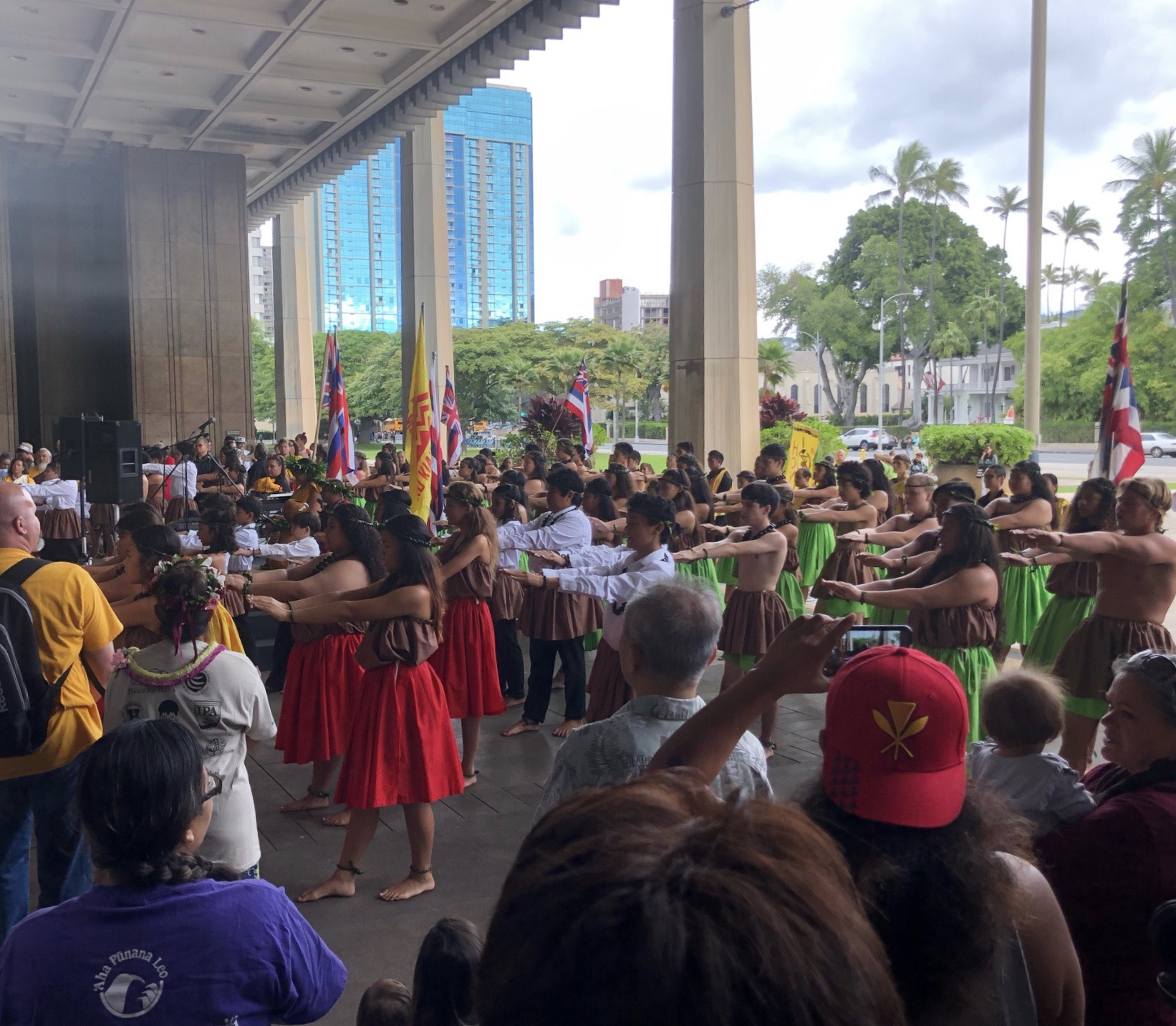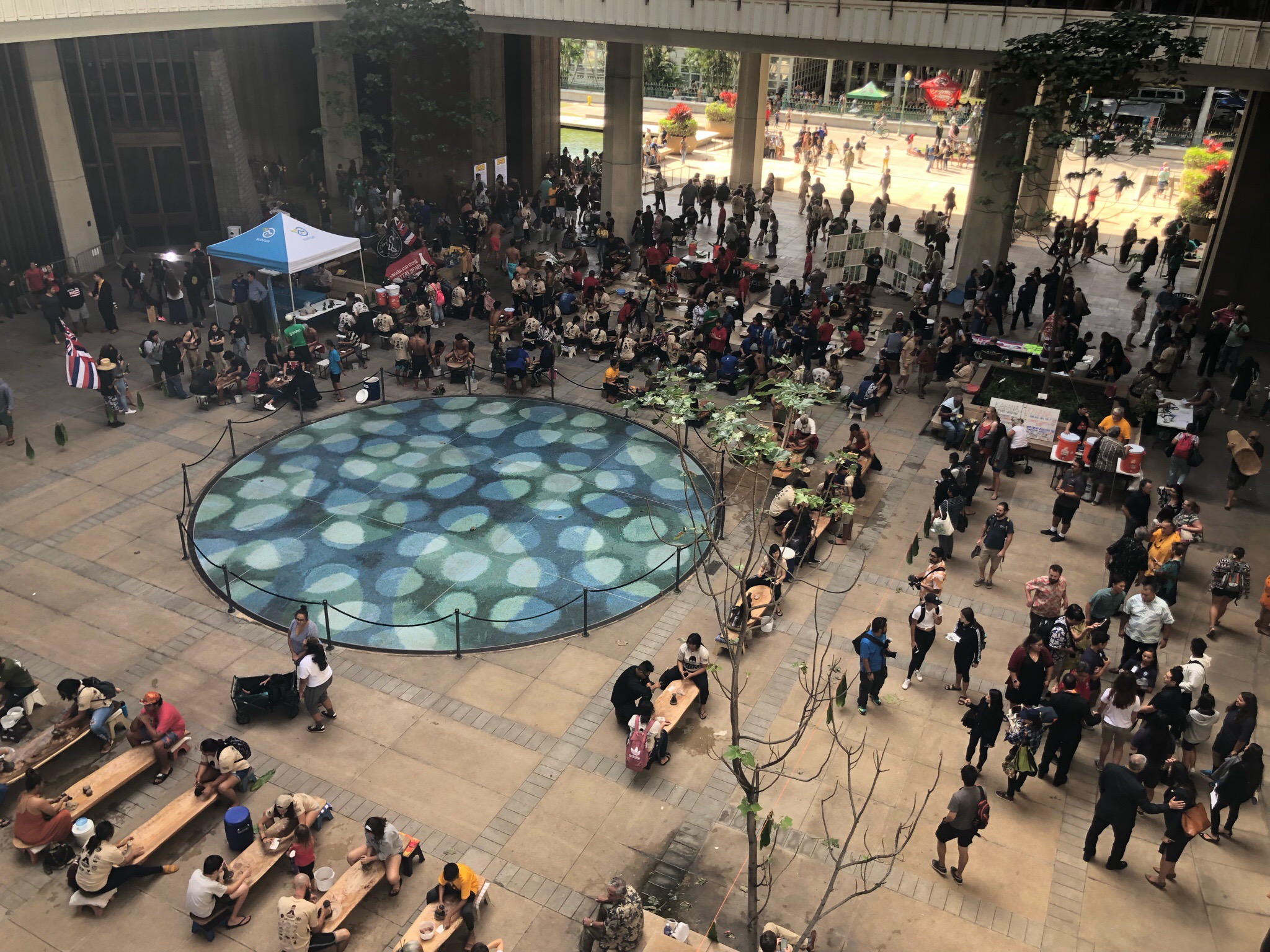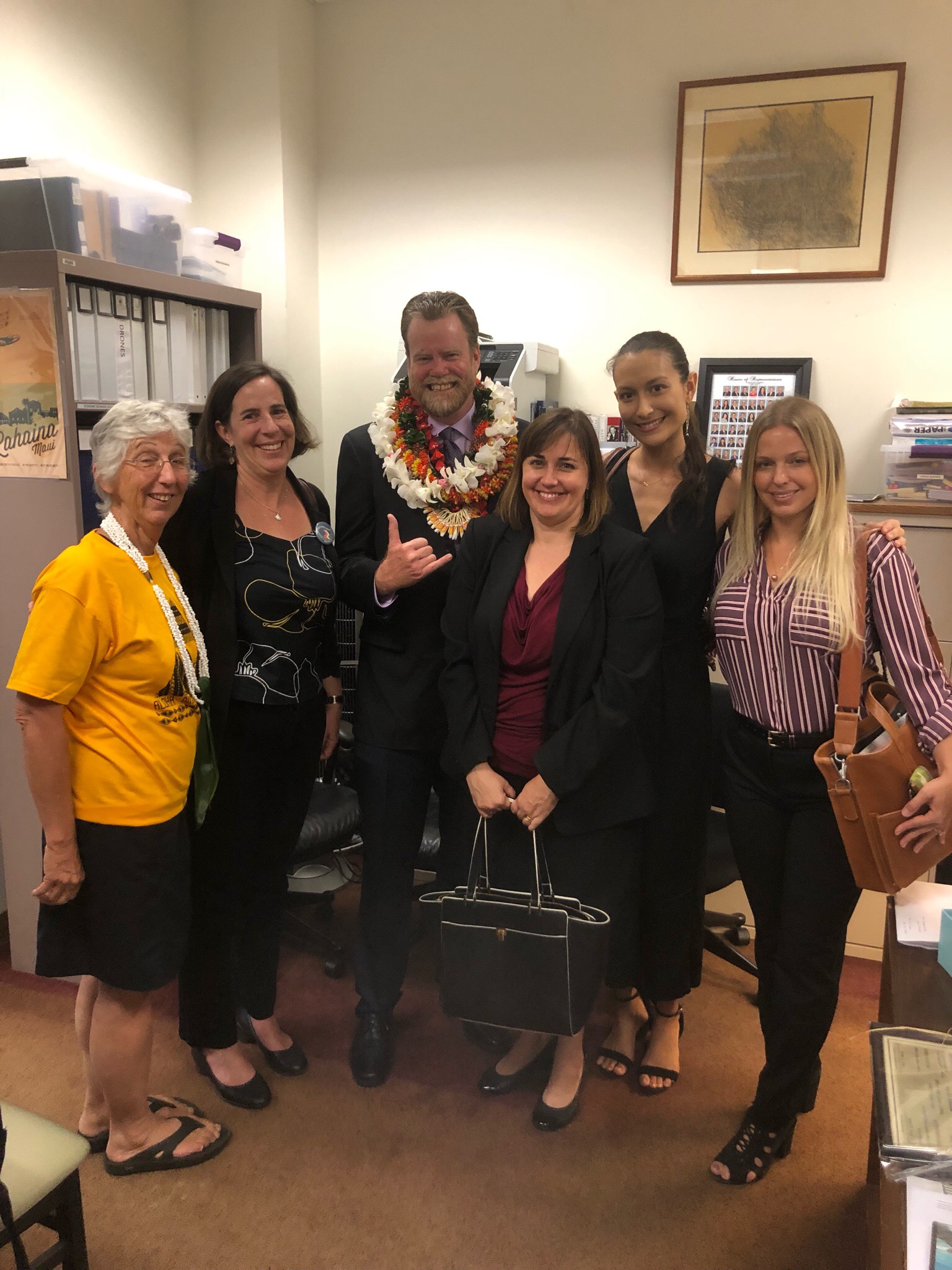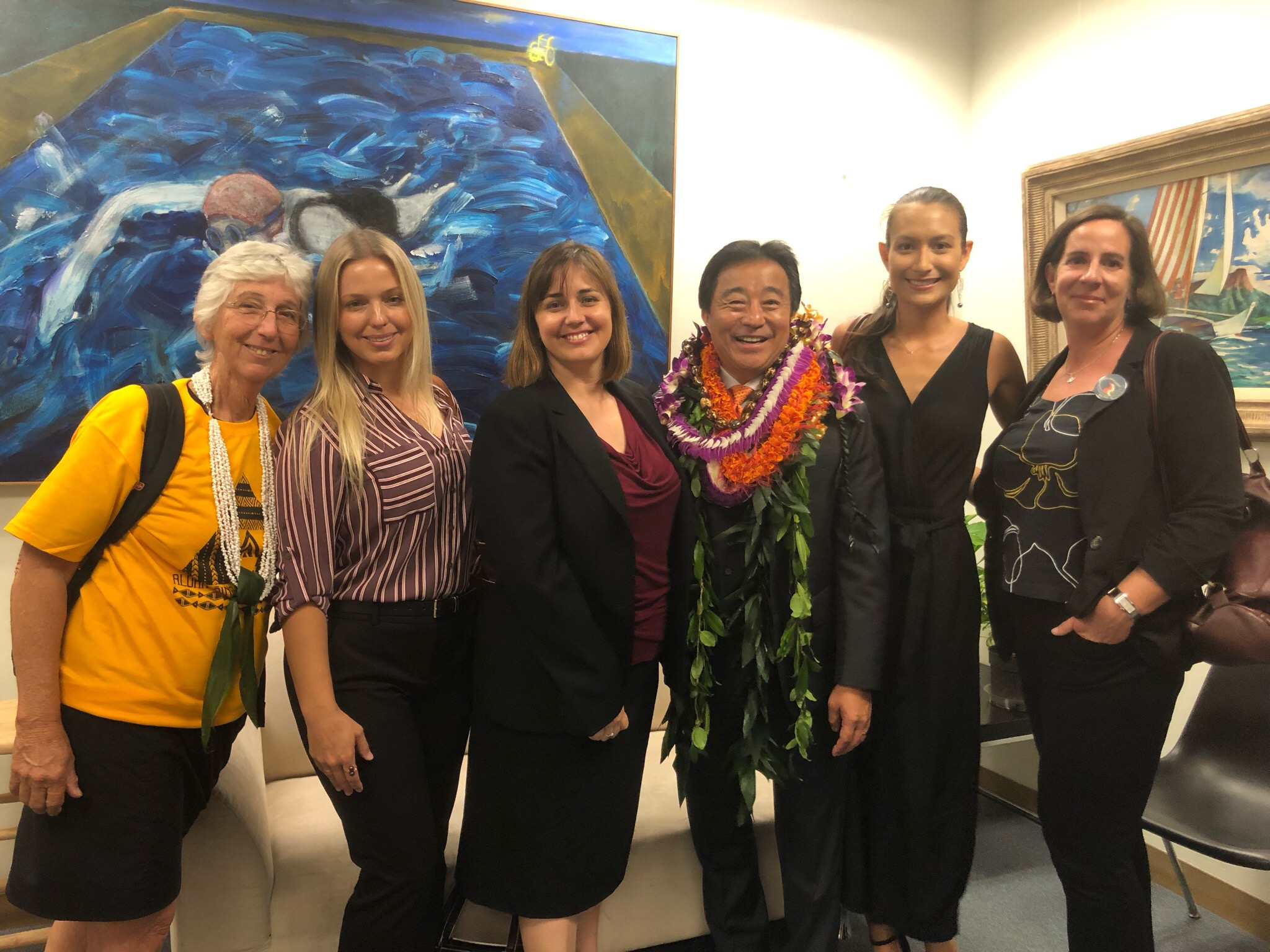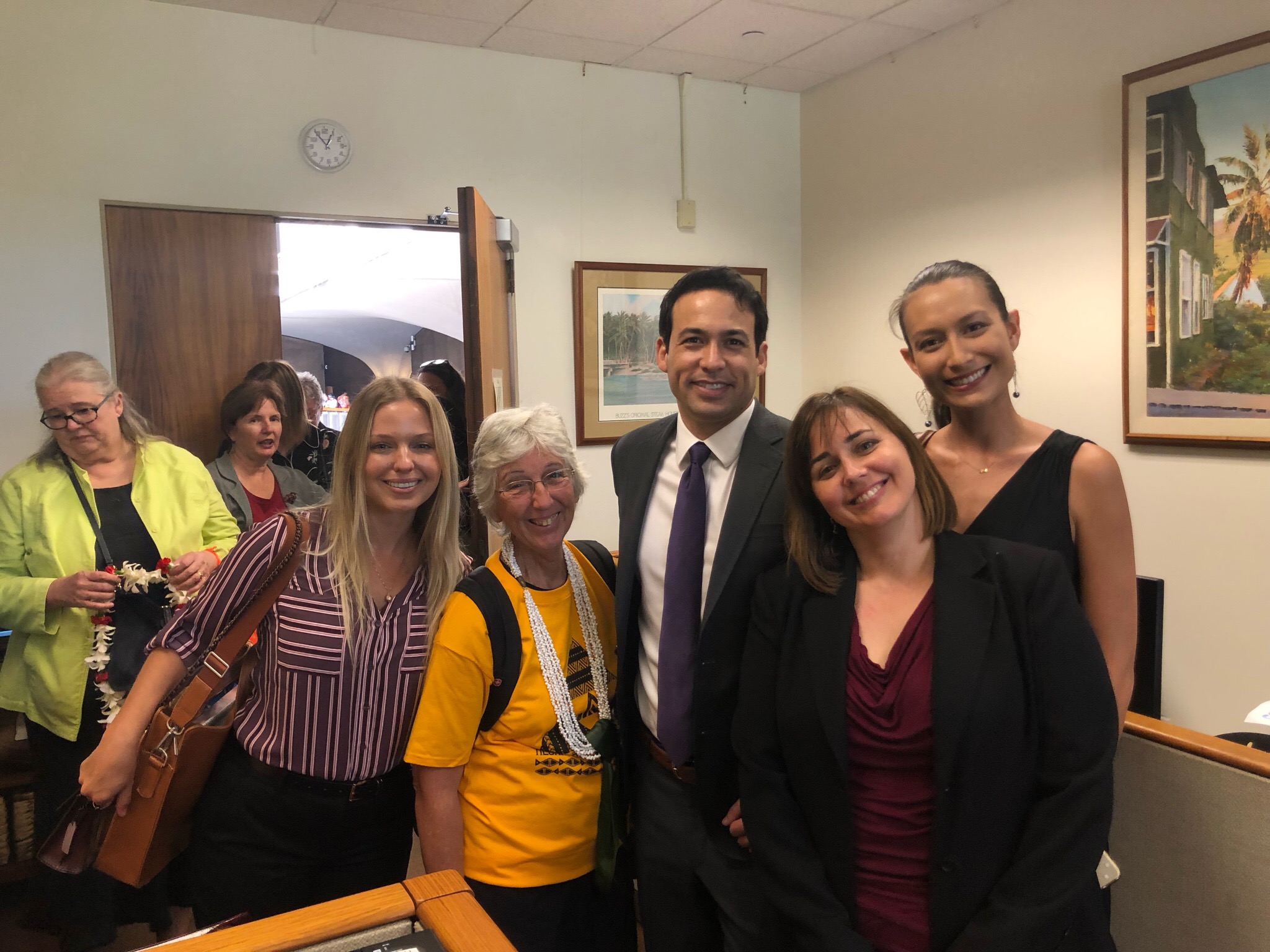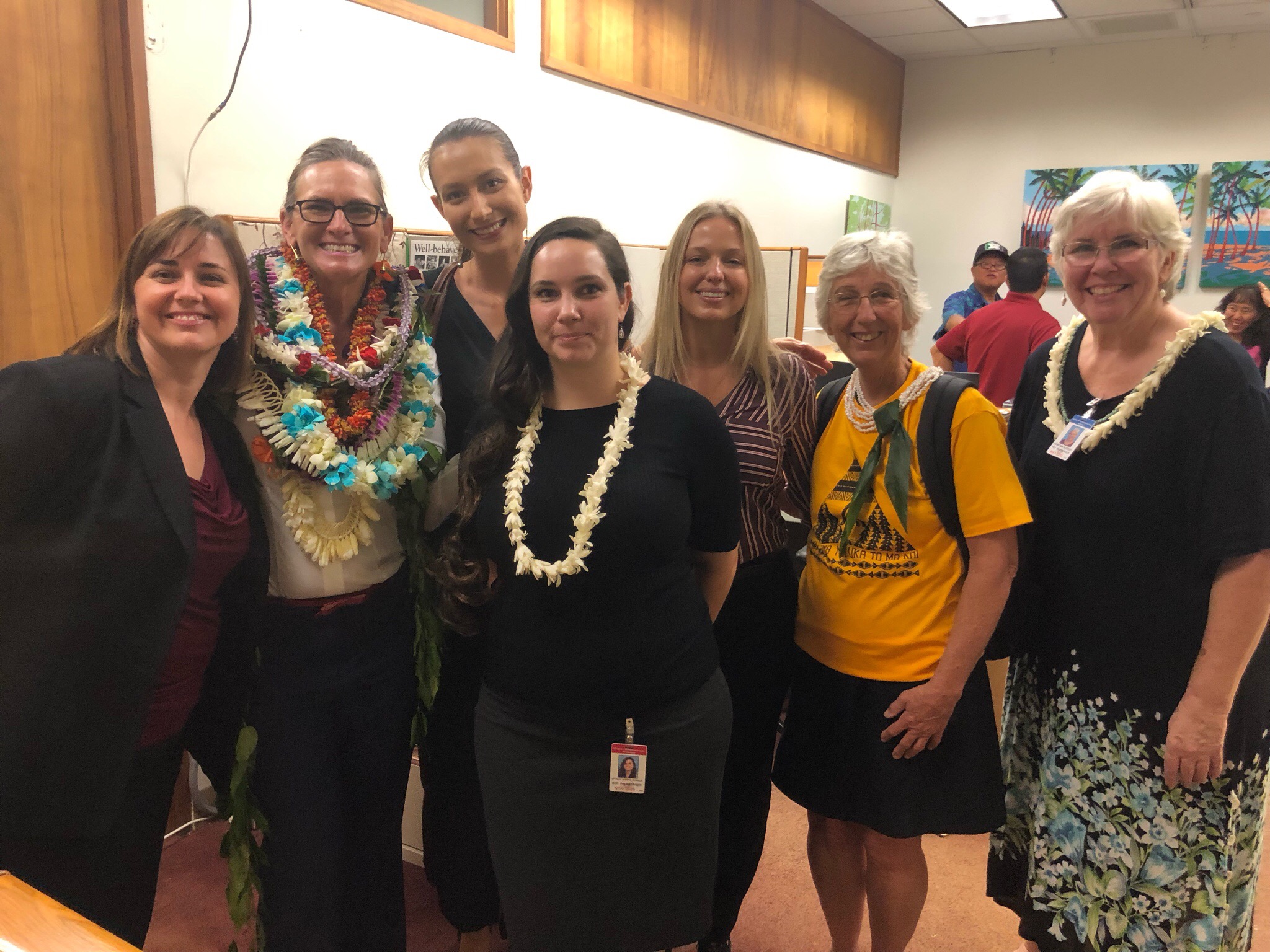Efforts to address the effects of a warming planet on a vulnerable island state have mostly fallen short this session.
By Nathan Eagle
Original article here.
The Aloha State won’t be taxing carbon emissions to combat climate change anytime soon after the Legislature balked on bills to do so this session.
Homeowners won’t have to tell potential buyers if they live in an area at increasing risk of flooding due to rising seas. Coal won’t be banned, or the sale of new gas-powered cars. And Hawaii land use laws won’t be strengthened to protect beaches and coastal communities.
Lawmakers opened the session in January with dozens of climate-related bills and a sense of urgency to address the looming effects of a warming planet.
But, with less than three weeks to go, only a handful of measures remain and most amount to more studying and planning.
Not all is lost. A few bills would at least steer the state in the right direction, according to legislators, climate scientists, environmental groups and labor organizations.
Lawmakers are still moving forward with bills to study carbon pricing options, provide money for meaningful updates to the Hawaii 2050 Sustainability Plan and establish an emboldened energy office that has the resources and authority to carry out broad initiatives that are already on the books, such as making the state carbon neutral by 2045, greening the ground transportation sector and going 100 percent renewable for electricity.
Melissa Miyashiro, Blue Planet Foundation’s chief of staff, said the clean-energy nonprofit is disappointed in the demise of some of the bolder measures but still excited about three bills in particular that are headed into conference committee — the process at the end of each session where House and Senate negotiators try to reach agreement on the final drafts.
“There’s always more that we could be doing because we are facing the biggest challenge that humankind has ever faced and we don’t have a lot of time to shift the trajectory,” she said Wednesday.
Miyashiro was encouraged that House Bill 556 had survived. It would require the state to adopt minimum appliance efficiency standards for certain products, such as computers and monitors, shower heads and faucets, fluorescent lamps and sprinklers.
“It’s about saving consumers money while also lowering the carbon footprint,” she said, noting that a recent study found Hawaii has the biggest opportunity for savings of any state because of its soaring electricity costs.
Miyashiro was hopeful that House Bill 1585 would make it through, too. It would create a rebate program for electric vehicle charging systems. Lawmakers have yet to put any numbers in the bill, but the purpose is to help build out the charging infrastructure throughout the state so more people can switch to EV cars.
It could also help address a “chicken-and-the-egg issue” for upping the number of electric rental cars, which would curb an incredible amount of emissions given Hawaii’s 10 million visitors each year.
Hotels say there isn’t much demand, so they don’t want to invest in charging stations, Miyashiro said. But rental car companies say there aren’t many places to charge vehicles, so their customers don’t want electric cars.
Groups, including Blue Planet, are worried that a separate EV measure would be at odds with state and county clean-energy and carbon-neutrality goals. Senate Bill 409would make it more expensive to own an electric vehicle by adding a registration surcharge fee.
The idea behind the bill, introduced by Sen. Lorraine Inouye, is to have EV owners pay their fair share for road maintenance, since that comes from the gasoline tax. But Blue Planet, Tesla and others said that would send the wrong signal and is premature since fewer than 1% of registered vehicles in Hawaii are electric.
Miyashiro said it is also important to wait for the Department of Transportation to finish its road usage study, which would charge vehicle owners a fee based on how many miles they drive instead of how much gas they use.
“We’re just a little hesitant about scaling back incentives for electric vehicles when that study is still ongoing and we’re still at such an early stage for adoption,” she said.
Ground transportation accounts for 27% of Hawaii’s petroleum use. Electric power is another quarter, air transportation is 32% and marine transportation and other uses account for the rest, according to state figures for 2016.
State Energy Czar
Sen. Donovan Dela Cruz, who chairs the Ways and Means Committee, wants the Legislature to quit reacting to everything that comes up each session and become more proactive.
He said lawmakers will have a more serious discussion about the EV surcharge bill and others in conference committee. But he said some of the structural changes in government that he supports — namely, a more powerful and centralized state energy office — would solve many of these debates.
A version of Senate Bill 1259, introduced by Sens. Glenn Wakai, Dela Cruz, Kidani and Maile Shimabukuro, was resurrected last week after it died in the House. Dela Cruz and Wakai stuck a beefier version into House Bill 852. That had been a budget bill for energy and environmental programs but it got absorbed into a broader spending measure.
HB 852 would establish a chief energy officer, subject to Senate confirmation, and lay out the direction for the state energy office, ranging from providing analysis on renewable energy and clean transportation goals to leading efforts on energy resiliency and engaging the privateer sector to help.
Its latest draft provides $2.3 million in general funds for each of the next two fiscal years.
Dela Cruz said the different sectors for renewable energy have lobbied for tax credits and priority consideration. Instead, he would rather see lawmakers be more aggressive in laying out how the state plans to achieve its ambitious environmental goals.
“We should be setting the stage,” he said.
The bill notes how climate change is expected to cost the state $19 billion in sea level rise alone, making the switch to renewable energy and the ultimate reduction of carbon emissions even more of a priority.
University of Hawaii climate scientist Chip Fletcher, who co-authored the state’s seminal sea level rise study, said the session has had its share of disappointments but there have been minor successes.
“From where we stand right now, I give us a C,” he said.
The Legislature provided $205,000 in the state’s overall $16 billion budget to continue funding a climate change coordinator position, which had been in question. Anu Hittle currently holds the job, which involves working with the state Climate Commission on its efforts to help the state adapt to and mitigate the effects of climate change.
An overdue update to the Coastal Zone Management Act is dead this session.
Sam Lemmo, who heads the state Office of Coastal and Conservation Lands, had said this was a critical part of a “Climate 3.0” initiative that he envisioned to empower the executive branch to address climate change by moving beyond setting goals. He declined to comment for this story.
Senate Bill 393, introduced by Dela Cruz, cleared the Senate but went on to die in the House without a hearing. A similar measure, House Bill 549, introduced by Rep. Nicole Lowen, had a similar outcome — passing the House but then eventually dying in the Senate without a hearing.
Both would have provided substantial updates to the CZM law.
Asked why HB 549 didn’t get a hearing from Ways and Means, Dela Cruz said he thought his bill was still alive in the House. He said there’s still a slight chance it could be resurrected before the session ends.
“There was miscommunication about which version of the bill would move forward and by the time we wanted to hear it the deadlines were already passed,” Lowen said.
HB 549 would have required new developments to plan for the impacts of projected sea level rise and prohibited development in areas significantly affected by projected sea level rise. It also would have toughened coastal armoring policies.
The measure noted that 70% of Hawaii’s beaches are chronically eroding and more than 13 miles of beach have been lost to erosion fronting seawalls and revetments.
The bill had support from the Sierra Club, state and county agencies, the Democratic Party and others but was opposed by the Chamber of Commerce and Building Industry Association of Hawaii.
The chamber raised concerns about infringing on private property rights. In its testimony to lawmakers, the chamber said the proposed amendments would make it more difficult for homeowners to protect or improve their coastal properties and questioned who should compensate the landowner for their loss.
Lowen, like Dela Cruz, said it was disappointing that the bills died.
“There’s always next year,” she said.
A separate shoreline protection bill, which has support from the chamber and unions, is moving forward.
House Bill 1487, introduced by Lowen and Rep. Chris Lee, establishes a pilot project to protect urban Honolulu from sea level rise, floods, storms and other effects of a rapidly changing climate.
Its latest draft included $2 million so long as the City and County of Honolulu pays for half, which seems uncertain.
Josh Stanbro, who heads Honolulu’s climate change office, said the city will “explore the potential to allocate resources to this effort in the future should matching funds become available.”
The influential carpenters union, which has helped propel candidates to higher office, backs the proposal.
The union testified before lawmakers that the building industry is particularly sensitive to future impacts of climate change, including rising water tables, subsiding land and coastal erosion.
“It’s not over yet,” Lowen said. “We just have to wait and see what happens.”




